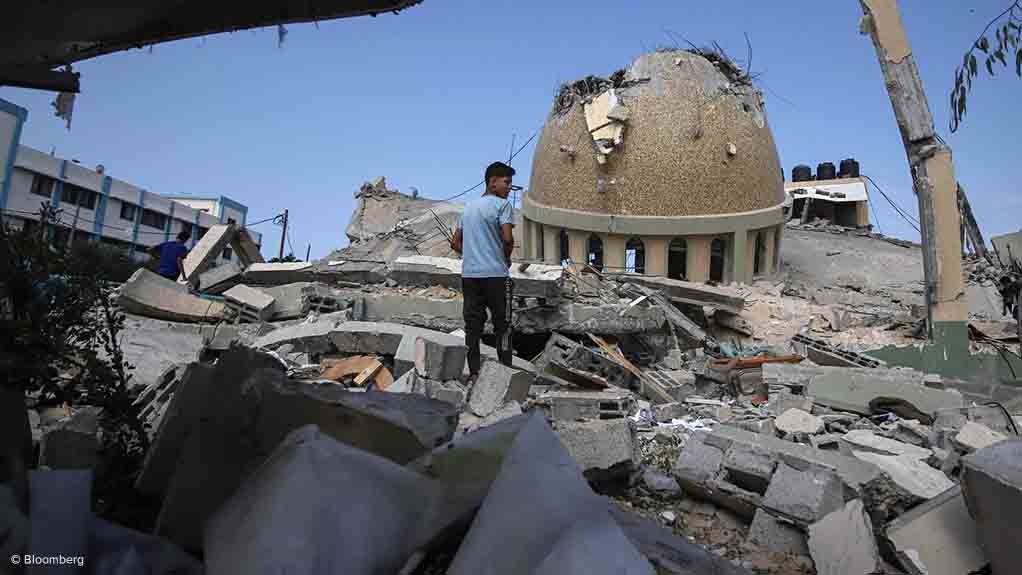Intensive talks are under way to secure a second extension to the truce in the Israel-Hamas war as the agreed pause in fighting nears expiration.
Negotiations were continuing on Wednesday over conditions to extend the truce as its end on Thursday morning approached.
Talks, involving the two parties as well as the United States, Qatar and Egypt were focused on the length of the extension and exchange of captives.
The initial four-day truce began on Friday following intense mediation. Despite some minor clashes, it was then renewed for two further days.
In that time, Hamas has released 81 of the captives, mostly Israeli nationals, that it took hostage on October 7.
In exchange, Israel has released a total of 180 Palestinian prisoners, including women and children, many of whom have been kept in administrative detention for years without charge.
At the same time, Israel has arrested almost as many Palestinians during the prisoner releases.The Israeli Broadcasting Corporation reported that Israel is looking into another extension.
“It depends on the conduct of Hamas,” an Israeli political official was quoted as saying, adding that negotiations for a new agreement would be discussed by the political echelon soon.
Israel had previously said it was willing to extend the truce by one day for every 10 hostages freed by Hamas.
Ghazi Hamad, a member of Hamas’s political bureau, told Al Jazeera: “We are working hard and we are hopeful that we can extend the ceasefire for more days, until we reach the total and complete end. We are ready to release more hostages for the extension.”“I hope that it can be implemented today,” he added.Negotiations over the extension have been ongoing over the past two days.
On Tuesday, the heads of the United States Central Intelligence Agency (CIA) and Israel’s Mossad met in Qatar to discuss the issues.
Qatar’s foreign ministry spokesman Majed al-Ansari said negotiators were seeking “a sustainable truce that will lead to further negotiations and eventually to an end … to this war”. Reporting from occupied East Jerusalem on Wednesday, Al Jazeera’s Imran Khan said there were “leaks coming out that there are negotiations between Israel and Hamas to release additional captives and extend the ceasefire” for five days.
If successful, the next phase of the truce and hostage release will reportedly be based around five categories, our correspondent said: “Israeli captives; elderly men who are too old to be reservists; female soldiers; reservist soldiers; and then the bodies of Israelis who were killed before or during captivity.“There seem to be positive noises coming from Hamas about this, as well.
Hamas, according to leaks about the categories, has said it is very keen to respect what the Israelis want,” Khan added.
Hamad confirmed that the group is ready to discuss the release of captured men and military personnel, as well as women and children.
“Now this point is on the table,” the Hamas official told Al Jazeera. “For the whole of captives, either military or civilians. We’re still discussing it with the mediators in order to reach a satisfying compromise.”
Analyst Mohammed Cherkaoui said negotiations have now entered a “pragmatic” phase involving various mediators and stakeholders.
“The good news is that we still have good momentum and all the channels are open and the political will is flourishing from all sides to continue on this path,” he told Al Jazeera.
Khan said that Hamas is looking for “a more permanent ceasefire”. But within Israel, there is a lot of pressure from the right wing that does not want the truce to go on indefinitely.“There is a deadline of Sunday that keeps being talked about. After Sunday – if the ceasefire lasts that long – the Israelis will want to go back in. It’s not a question of if, it’s a question of when,” Khan said.
However, Hamad suggested that international pressure has mounted on Israel to force it to maintain the truce, adding that Hamas is ready to discuss a full ceasefire, and the release of all captives on either side.“I think the world is fed up of the situation in Gaza,” he said. “Because of the Israeli crimes, the Israeli genocide against our people, there is strong and huge pressure on Israel to stop the war.”
EMAIL THIS ARTICLE SAVE THIS ARTICLE
To subscribe email subscriptions@creamermedia.co.za or click here
To advertise email advertising@creamermedia.co.za or click here











